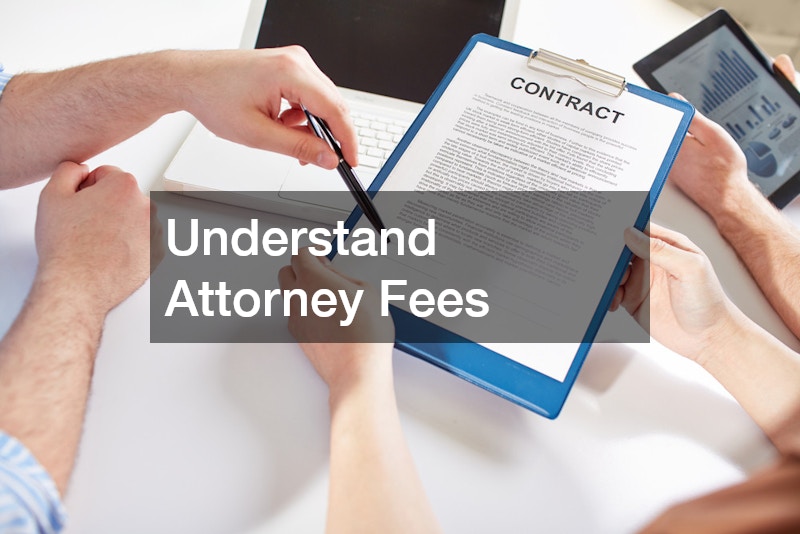Legal challenges can be overwhelming, whether you’re facing a divorce, managing an estate, recovering from a car accident, or defending yourself against criminal charges. One of the most important steps you can take is selecting the right attorney to guide you through the legal process. From custody attorneys to estate planning lawyers, each legal specialist brings specific knowledge and experience that can significantly affect the outcome of your case.
This guide will help you understand the different types of legal professionals, when to seek their services, and how to choose the right attorney for your specific situation.
Why Choosing the Right Attorney Matters
Attorneys are more than just legal experts—they’re your advocates during some of life’s most stressful moments. The right attorney helps you navigate complex legal systems, understand your rights, and reach the best possible resolution.
The wrong attorney, on the other hand, can cost you time, money, and even legal victories. That’s why it’s essential to find someone with the appropriate specialization, communication style, and ethical standards for your unique needs.
An effective attorney-client relationship is built on trust. It’s crucial to establish a partnership where the attorney offers transparent, honest counsel based on their specialized legal expertise and your personalized needs.
Understand the Type of Legal Help You Need
The first step in choosing the right attorney is identifying the nature of your legal issue. Legal professionals typically specialize in one or more areas of law. Hiring someone with the right expertise will give you a distinct advantage in your case.
Understanding your legal situation helps you seek the appropriate guidance, whether from custody attorneys for family issues, estate planning lawyers for asset management, or criminal defense attorneys for criminal charges. Each situation demands a tailored approach that only a specialist can provide.
Knowing your legal needs not only saves time but also helps in finding an attorney who fully understands your circumstances and how to improve your case outcome effectively.
Family Attorneys and Custody Attorneys

When to Hire:
Family attorneys specialize in the legal aspects of personal relationships. A local divorce lawyer can help you manage asset division, spousal support, and parenting plans. If children are involved, custody attorneys ensure your parental rights are protected and work toward a custody arrangement in the child’s best interests.
During divorce proceedings, or when dealing with child custody or visitation disputes, family attorneys are crucial in ensuring a fair and amicable resolution. Their knowledge of family law can significantly affect your life and the lives of your loved ones.
Whether adopting a child or negotiating spousal support or alimony issues, family attorneys are there to safeguard your family’s future by providing comprehensive legal services tailored to your individual circumstances.
What to Look For:
When hiring a family attorney, look for knowledge of state-specific family laws. Such expertise ensures they can provide you with actionable advice that aligns with local legal standards. Their understanding of regional regulations is a significant asset.
Compassionate yet assertive communication is also essential. A good attorney listens carefully to your concerns, articulates them clearly in a legal setting, and fights for your best interests with empathy and strength.
Moreover, experience in mediation and litigation is highly beneficial. A well-rounded attorney can manage court cases or facilitate out-of-court settlements, offering you flexibility in achieving a desirable outcome.
Estate Planning Lawyers and Estate Attorneys
When to Hire:
Estate planning lawyers help you make informed decisions about how your assets will be handled after your death. Their advice ensures your wishes are legally binding and clearly communicated to your family.
In complex scenarios like establishing trusts or planning for incapacity, an estate attorney can guide you through the intricacies of estate laws. They help minimize inheritance taxes, thus preserving more assets for your beneficiaries.
Managing the probate process can be stressful and fraught with challenges. Estate attorneys streamline this, ensuring an orderly transfer of assets, while addressing any unforeseen legal issues that could arise.
What to Look For:
A strong understanding of estate and tax laws is critical when choosing an estate planning lawyer. They should be well-versed in these areas to provide strategic advice that aligns with your financial goals.
Look for an attorney with experience in handling complex asset structures. Knowledge of diverse financial instruments ensures they can tailor their legal strategy to the specifics of your estate.
Moreover, a personalized approach to long-term planning is invaluable. A dedicated attorney will ensure your plans reflect your life changes over time, maintaining relevance and effectiveness.
Criminal Defense Attorneys

When to Hire:
A criminal defense attorney is essential when you’re accused of a crime. Their role is to examine the evidence, protect your constitutional rights, and build a strategic defense. Whether negotiating a plea deal or representing you in court, their expertise could mean the difference between freedom and conviction.
Facing criminal charges for offenses like DUI, theft, assault, or drug-related incidents can have severe legal repercussions. A dedicated defense attorney works hard to ensure the protection of your rights and strive for the best possible outcomes.
During investigations or trials, having a qualified attorney is critical. Their advocacy is crucial not just for legal defense but for providing reassurance and clarity in what can often be a daunting and overwhelming situation.
What to Look For:
Courtroom experience and trial success are key indicators of a proficient criminal defense attorney. A strong track record in criminal cases demonstrates their ability to win cases and secure favorable verdicts.
Additionally, strong negotiation skills are paramount. A capable attorney will seek beneficial plea deals or alternative settlements when applicable, saving time, stress, and potential penalties.
Finally, focus on availability and responsiveness. An attorney who is readily accessible to answer your queries and discuss your case can provide a sense of comfort and assurance during challenging times.
Car Accident Attorney and Personal Injury Attorneys
When to Hire:
A car accident attorney or personal injury attorney will help you recover damages for medical expenses, lost wages, and emotional suffering. They work closely with insurance companies and medical professionals to document your injury and build a compelling case.
If you’ve been injured due to negligence or someone else’s actions, personal injury attorneys play a pivotal role in seeking justice and securing the compensation you deserve.
Filing insurance claims or initiating litigation after a motor vehicle accident can be complex. Here, experienced attorneys advocate for your rights, ensuring accountability and remedy for losses incurred.
What to Look For:
Choose an attorney with experience in local traffic and liability laws. This ensures they can navigate jurisdiction-specific regulations and negotiate effectively with all involved parties.
Check their track record of successful settlements. Past achievements can indicate how effective they might be in advocating on your behalf.
Consider an attorney working on contingency-based fees, where you only pay if you win. This arrangement can offer peace of mind as the attorney is incentivized to achieve a favorable outcome.
Bankruptcy Attorney

When to Hire:
A bankruptcy attorney can guide you through filing for Chapter 7 or Chapter 13 bankruptcy. Their goal is to help you eliminate debt, protect assets, and make a fresh financial start.
Facing foreclosure, wage garnishment, or overwhelming debt can affect your livelihood severely. An attorney with specialized knowledge is crucial to exploring debt relief options effectively.
The bankruptcy process is complex and navigating it without professional guidance could result in costly mistakes. A seasoned attorney can prevent harassment by creditors while laying the groundwork for financial recovery.
What to Look For:
When choosing a bankruptcy attorney, their in-depth knowledge of bankruptcy laws is essential. They should provide clarity on your options and potential consequences.
The ability to explain options simply and efficiently is another significant quality. Understanding your alternatives ensures you make the most informed decisions for your financial health.
An honest assessment of your financial situation indicates an attorney’s commitment to your future. Transparent advice is crucial for setting realistic expectations and devising a workable plan.
Disability Lawyer
When to Hire:
A disability lawyer helps clients who cannot work due to a physical or mental condition. Their job is to gather medical documentation, meet SSA deadlines, and improve the chances of a successful claim.
If your initial claim was denied, a lawyer can gear up for the appeals process, advocating on your behalf effectively and strategically.
Navigating complex appeals processes can be daunting without specialized assistance. A disability lawyer identifies and mitigates potential barriers, giving you the best chance for a favorable outcome.
What to Look For:
Familiarity with SSA requirements and processes is critical for any disability lawyer. They need to stay updated on changing regulations to represent you effectively.
Look for compassionate client advocacy, which indicates their willingness to fully engage with your unique situation and provide personalized support and representation.
Success rates with disability claims showcase an attorney’s capability to secure client benefits. Thorough reviews of past case results can inform your decision-making process.
How to Search for the Right Attorney
Use Trusted Resources:
Finding the right attorney begins with using trusted resources such as state bar association directories. These platforms ensure you connect with licensed professionals.
Online platforms like Avvo, Martindale-Hubbell, and Super Lawyers provide detailed attorney profiles, allowing you to evaluate their qualifications and client feedback swiftly.
Referrals from friends, family, or other professionals can offer firsthand insights into a lawyer’s effectiveness, communication, and work ethic, streamlining your selection process.
Verify Their Credentials:
Check the attorney’s state bar status and disciplinary history. This step is crucial for confirming their standing and reputation within the legal community.
Review client testimonials and past case results to gauge their performance and satisfaction levels. Such feedback provides valuable perspectives on their reliability and professionalism.
Confirm the attorney’s specialization in the relevant area of law. Dedicated experience in a specific legal field contributes to a higher likelihood of a successful outcome in your case.
Schedule Consultations and Ask Questions
Many attorneys offer free or low-cost initial consultations. Use this opportunity to evaluate their professionalism and communication style.
This interaction allows you to assess whether their legal approach aligns with your needs. Specifically, pay attention to their attentiveness, responses, and willingness to explore your case comprehensively.
Important questions to ask include determining their experience with cases like yours, potential outcomes, how they will keep you updated, and their fee structure. These queries help set clear expectations upfront.
Be wary of attorneys who promise specific results or pressure you into signing contracts. The best legal advisors provide honest assessments without resorting to high-pressure tactics.
Understand Attorney Fees

Attorneys charge for their services in various ways, depending on the type of case. Understanding their fee structure helps avoid unwelcome surprises later on.
Hourly rates are common for family law, estate planning, and criminal defense. Flat fees and retainer arrangements are often used for predictable, straightforward cases like wills or uncontested divorces.
Contingency fees are typical in personal injury cases, where the attorney only gets paid if you win. This model often provides a degree of financial security during the legal process.
Always request a written fee agreement and ask for clarity about any additional charges (filing fees, court costs, expert witness fees, etc.).
Final Thoughts
Whether you’re dealing with a family matter, criminal charge, personal injury, or planning your estate, the right attorney can guide you with clarity and confidence. Choosing a legal professional is not just about qualifications—it’s about finding someone you trust, who communicates well, and who genuinely cares about your outcome.
From custody attorneys to disability lawyers, legal professionals are here to help you through some of life’s most challenging moments. Take your time, ask the right questions, and choose wisely. Your future could depend on it.

